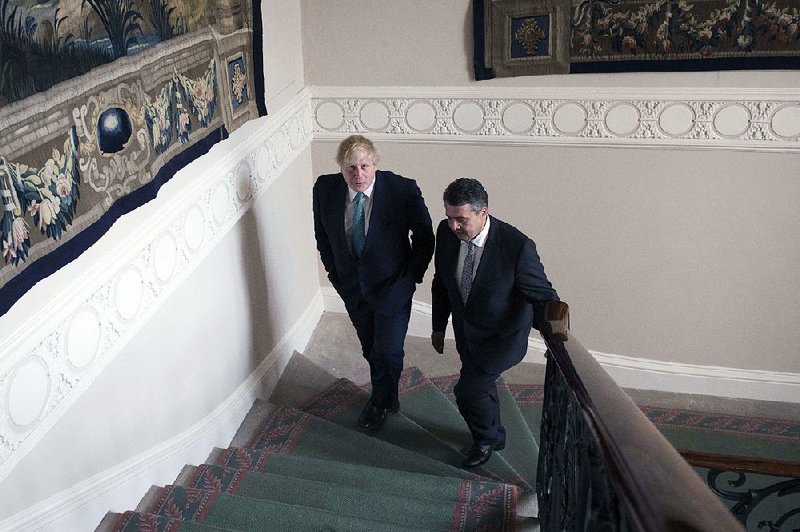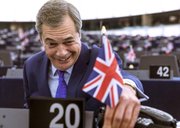LONDON -- The United Kingdom's aim of forging a new deal with the European Union in two years may be unrealistic, and the government must set out the economic implications of failure, a powerful group of lawmakers said Tuesday.
The U.K. wants to strike a sweeping free-trade agreement with the bloc, but Prime Minister Theresa May says leaving without a deal would be better than accepting a bad settlement.
Parliament's Exiting the EU Committee said that assertion is not based on evidence.
The committee said Tuesday that "the government should conduct a thorough assessment of the economic, legal and other implications of leaving the EU without a deal in place."
After meeting British Foreign Secretary Boris Johnson in London, German Foreign Minister Sigmar Gabriel said failing to seal a deal would hurt both the U.K. and the bloc -- but the U.K. would suffer more.
"My personal opinion is that the burden for the Brits is higher than for the Europeans," he said.
Gabriel said he was optimistic the two sides could strike a good deal, though he cautioned that it would not bring Britain the same benefits as the EU membership it is relinquishing.
"No one should be left with the impression that the advantages of membership of the European Union can be used by people who are not members of the European Union," Gabriel said.
Meanwhile, the EU's chief exit negotiator said the U.K. must settle the details of its breakup before discussing any future free-trade deal or risk crashing out without an accord.
"The U.K. government will push for parallel negotiations on the withdrawal and the future relationship," Michel Barnier told the European Parliament in Strasbourg, France. "This is a very risky approach. To succeed, we need on the contrary to devote the first phase of negotiations exclusively to reaching an agreement on the principles of the exit."
With a consultative role in the negotiations that are to get underway next month and veto power over any final agreement, the EU Parliament is scheduled this week to outline its priorities for the two-year process that May triggered last week. The stance will be the assembly's input into negotiating guidelines that the leaders of Britain's 27 EU partners are to fix on April 29.
Barnier said that the first phase of negotiations on exiting the bloc "is our best chance to build trust" before moving on to the future relations. "We are not proposing this to be tactical or to create difficulties for the U.K.," he told EU lawmakers. "On the contrary, it is an essential condition to maximize our chances to reach an agreement within two years."
The 751-seat Parliament plans to warn the U.K. against starting free-trade negotiations with countries outside the EU before the British exit, saying such a step would violate the bloc's law, and to call on Britain to "honor all its legal, financial and budgetary obligations," according to a draft resolution sponsored by five of the six main political groups. Jean-Claude Juncker, president of the European Commission, the EU's executive arm, has put the divorce bill for Britain at as much as $64 billion.
"If you leave the house, you have to pay the bills," said Gianni Pittella, Italian leader of the Socialists in the EU Parliament. "It's simply doing your duty."
May triggered Article 50 of the EU's key treaty last week, starting a two-year countdown to the severing of ties. U.K. officials hope that in that time they can work out terms and agree on a new relationship between Britain and the 27-nation bloc.
In its report, the Exiting the EU Committee said "it is not yet evident" that the British government's two-year time frame is realistic.
May said she believes details of "the future arrangements, the future relationship, [the] future partnership between us and the European Union" can be sealed within two years.
Information for this article was contributed by Jill Lawless of The Associated Press and by Jonathan Stearns and Jones Hayden of Bloomberg News.
A Section on 04/06/2017

